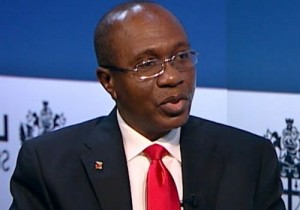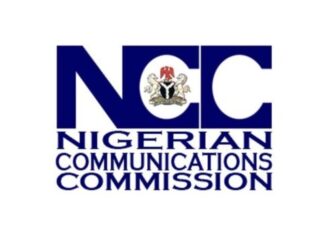Fitch Ratings has both allayed fears and heightened apprehensions over the state of some banks in Nigeria.
It brought into the public domain the risk profile of 10 banks, one of which may be your own – without you knowing it.

The ratings agency affirmed in its latest report the Long-term Issuer Default Ratings (IDRs) of Zenith Bank, First Bank of Nigeria Holdings (FBNH), Guaranty Trust Bank (GTB), and Access Bank.
IDR, VR, SRF
It says their IDRs are driven by their standalone strength measured by their Viability Ratings (VRs).
However, those of First Bank, a member of FBNH; UBA, Diamond Bank, Fidelity Bank, Union Bank, and First City Merchant Bank (FCMB) are support-driven, signifying that they require sovereign or government’s support.
According to Fitch, the IDRs of GTB and FBNH are driven by VRs and are therefore not sensitive to changes in Support Rating Floors (SRFs). Key rating drivers, IDRS, Support Ratings (SRs) and SRFs. (All banks apart from SIBTC and SIBTCH that only have national ratings).
However, a one-notch downgrade of the sovereign would not necessarily lead to a downgrade of the SRFs. The IDRs of Zenith and Access would only be downgraded if both VRs and SRFs are simultaneously downgraded (their VRs and SRFs are currently at the same level) and revised lower.
In assessing the probability of sovereign support, Fitch considers the government’s willingness to support banks to be high as demonstrated in the past, but the ability to do so may be constrained by Nigeria’s ‘BB-‘ sovereign rating.
Fitch assigns SRFs based on each bank’s systemic importance. The most systemically important banks in its view are First Bank, Zenith, and UBA, which are assigned SRFs of B+’.
Other banks have SRFs of ‘B’. FBNH is the holding company of First Bank. Its SR of ‘5’ and SRF of ‘No Floor’ reflect Fitch’s view that while the propensity of Nigerian authorities to support local banks is high, the same level of support would not apply to holding companies.
Zenith VR
Zenith’s VR considers its strong franchise, management quality, conservative risk appetite, and robust financial metrics. Asset quality is sound and upstream oil and gas exposure represented a limited 6 per cent of loans at end-September 2014.
Zenith has a track record of good client selection and Fitch does not expect major impairments in its corporate book. The bank’s capitalisation and leverage compare well with those of peers, and its benefit from strong funding franchise, sound liquidity, and proven access to wholesale markets.
The resilience of the financial performance of Zenith stands out, and it should manage 2015 better than most peers, says Fitch.
GTB VR
The VR of GTB considers its sound financial metrics compared with those of most domestic peers. These include sound profitability, driven by efficiency gains from a low cost business model, healthy asset quality, driven by sound underwriting, and adequate capital.
The VR also considers a proven strategy implemented by a strong management team.
First Bank VR
The VR of FBNH and First Bank reflect the group’s traditionally strong company profile and adequate capitalisation and profitability. Asset quality metrics are acceptable but the group has the highest oil and gas exposure among peers (40 per cent of gross loans at end-September 2014).
This is a key risk, in particular the upstream book (12 per cent).
FBNH has a strong funding franchise. Its retail franchise allows it to source low-cost deposits, and it successfully accessed capital markets in 2014. Group liquidity is adequate.
UBA VR
Fitch says the VR of UBA is constrained by weak, albeit improving, capitalisation.
The VR also considers a strong company profile, including a broader international footprint than peers. This makes UBA less sensitive than peers to current turbulence in Nigeria, although 2015 will still be challenging.
Asset quality is adequate. Non performing loans (NPLs) are currently low, although Fitch expects these to increase.
UBA has strong funding and liquidity. Its large pan-African network allows it to collect low-cost deposits, and the loan-to-deposit ratio is low.
Access VR
The VR of Access Bank reflects its adequate capitalisation, which will improve should a planned rights issue complete successfully.
The VR also considers its stronger company profile since it acquired Intercontinental Bank, which has benefitted financial metrics, including improved earnings and asset quality.
Diamond VR
Diamond Bank’s VR is constrained by weak capitalisation, which is inadequate in light of its risk profile, despite the completion of a rights issue in November 2014. Asset quality is slightly weaker than most peers, Fitch says.
While the level of impaired loans is currently acceptable, certain large exposures present downside risk. Fitch views risk appetite as high, considering plans to materially expand retail and small and medium enterprise (SME) lending activities.
While these segments are inherently risky, this is where the bank’s expertise lies.
Furthermore, risk controls and underwriting standards in the retail business are advanced.
The VR also reflects Diamond’s acceptable earnings, funding and liquidity.
Fidelity VR
Fidelity Bank’s VR reflects its weaker company profile than those of peers. The bank’s lack of scale manifests in its niche business model.
The VR considers Fidelity’s weaker and less stable earnings than those of peers, a high cost base, and a greater reliance on non-core banking revenues.
It also considers the bank’s improved asset quality metrics over the last three years.
Union Bank VR
The VR of Union Bank Union reflects threats to asset quality ratios from a sizeable portfolio of past due, but not impaired, loans and a material exposure to the oil sector. The VR considers a higher risk appetite than those of peers, indicated by loan growth above the sector average, albeit from a lower base than peers.
It also considers some exposure to operational risk resulting from a weaker technological platform than those of peers, which Union Bank is currently addressing.
The VR factors in weak earnings, but also a resilient funding profile supported by adequate liquidity.
FCMB VR
According to Fitch, the VR of FCMB is constrained by its small but evolving full service banking franchise. The bank plans to expand lending in what Fitch views as inherently high-risk retail and SME segments.
Asset quality is acceptable, although its NPL ratio is likely to worsen as the loan book seasons. Capitalisation is sound, although Fitch expects a weakening in the medium term, driven by loan growth.
Earnings are adequate despite a high cost-to-income ratio.
Funding and liquidity are considered the bank’s weaknesses, with the regulatory liquidity ratio being one of the lowest in the sector, and the loan-to-deposit ratio being close to 80 per cent.
First Bank IDR
First Bank’s Long-term foreign currency IDR affirmed at ‘B+’; Stable Outlook Short-term foreign currency IDR (‘B’); National Long-term (‘A+(nga)’); National Short-term (‘F1(nga)’); VR (‘b’) SR (‘4’); SRF (‘B+’).
FBN Finance company BV’s subordinated notes (‘B-‘); Assigned ‘RR6’ FBNH Long-term foreign currency IDR (‘B’); Stable Outlook Short-term foreign currency IDR (‘B’) National Long-term rating (‘A(nga)’) National Short-term rating (‘F1(nga)’) VR (‘b’); SR (‘5’); SRF (‘No Floor’).
Zenith IDR
Zenith Long-term foreign currency IDR (‘B+’); Stable Outlook Short-term foreign currency IDR (‘B’); National Long-term (‘AA-(nga)’); National Short-term (‘F1+(nga)’).
VR (‘b+’); SR (‘4’); SR Floor (‘B+’); Global medium term note programme affirmed (‘B+’ /’RR4’/’B’); Senior unsecured notes (‘B+’/’RR4’).
UBA IDR
UBA Long-term foreign currency IDR (‘B+’); Stable Outlook Short-term foreign currency IDR (‘B’); National Long-term (‘A+(nga)’); National Short-term (‘F1(nga)’); VR (‘b-‘); SR (‘4’); SRF (‘B+’).
Access Bank IDR
Access Long-term foreign currency IDR (‘B’); Stable Outlook Short-term foreign currency IDR (‘B’); National Long-term (‘A-(nga)’); National Short-term (‘F2(nga)’).
VR (‘b’); SR (‘4’); SRF (‘B’); Finance BV senior notes guaranteed (‘B’/’RR4’); Subordinated notes (‘B-‘/ ‘RR6’).
GTB IDR
GTB Long-term foreign currency IDR (‘B+’); Stable Outlook Short-term foreign currency IDR (‘B’); National Long-term (‘AA-(nga)’); National Short-term (‘F1+(nga)’).
VR (‘b+’); SR (‘4’); SRF (‘B’); Finance BV’s senior notes guaranteed (‘B+’/’RR4’); Finance BV’s global medium-term note programme guaranteed (‘B+’/’RR4’/’B’).
Diamond Bank IDR
Diamond Long-term foreign currency IDR (‘B’); Stable Outlook Short-term foreign currency IDR (‘B’); National Long-term (‘BBB+(nga)’); National Short-term (‘F2(nga)’); VR (‘b-‘); SR (‘4’); SRF (‘B’); Senior unsecured notes (‘B’/’RR4’).
Union Bank IDR
Union Long-term foreign currency IDR (‘B’); Stable Outlook Short-term foreign currency IDR (‘B’); National Long-term (‘BBB+(nga)’); National Short-term (‘F2(nga)’); VR (‘b-‘); SR (‘4’); SRF (‘B’).
Fidelity IDR
Fidelity Long-term foreign currency IDR (‘B’); Stable Outlook Short-term foreign currency IDR (‘B’); National Long-term (‘BBB+(nga)’); National Short-term (‘F2(nga)’); VR (‘b-‘); SR (‘4’); SRF (‘B’); Senior unsecured notes (‘B’/’RR4’).
FCMB IDR
FCMB Long-term foreign currency IDR (‘B’); Stable Outlook Short-term foreign currency IDR (‘B’); National Long-term (‘BBB+(nga)’); National Short-term (‘F2(nga)’); VR (‘b-‘); SR (‘4’); SRF (‘B’).
SIBTC National Long-term
SIBTC National Long-term rating (‘AAA(nga)’); National Short-term (‘F1+(nga)’); SIBTCH National Long-term (‘AAA(nga)’); National Short-term (‘F1+(nga)’).
National Ratings of Stanbic IBTC, SIBTC, and Stanbic IBTC Holdings (‘B’).
The National Ratings of SIBTC and SIBTCH are sensitive to a change in potential support from their ultimate parent, SBG.
Rating sensitivities
Ratings and Outlooks are sensitive to a prolonged and severe recession that would affect the ability or willingness of the Nigerian authorities to provide support.
All Outlooks are Stable
The operating environment is affected by persistently low oil prices, continuing pressure on the naira, likely further monetary policy and regulatory actions, and increased political uncertainty.
At the same time, the ratings are underpinned by continued strong underlying economic growth in Nigeria, particularly in non-oil sectors.
Fitch expects non-oil Gross Domestic Product (GDP) growth of 5.5 per cent in 2015 (2014: 7.5 per cent), driven by economic reforms and limited impact from public sector austerity.
The highly challenging and volatile operating environment in Nigeria constrain the VRs and the other key rating factors, particularly the banks’ financial profiles.
The recent oil price shock and currency pressure have weakened the Nigerian operating environment and are likely to result in lower GDP growth in 2015. In turn, banks are likely to report weaker profitability, asset quality and capital ratios.
These pressures are to an extent captured in Fitch’s ratings, and partly explain the Stable Outlooks.
Nevertheless, should the operating environment deteriorate faster than expected, particularly should it significantly impact banks’ capital and asset quality, VR downgrades cannot be ruled out.
Fitch forecasts sector NPLs to rise above the Central Bank of Nigeria (CBN’s) informal cap of 5 per cent, but below 10 per cent by end-2015. This reflects high credit concentrations as well as emerging risks, particularly in the oil and gas and power sectors.
These factors, together with a shift to Basel II and CBN’s revised regulatory capital computation rules, are likely to add more pressure on capital than previously expected.
Tier 1 capital ratios could fall below 15 per cent for many banks, which is low in the Nigerian context.
Oil and gas exposures, particularly upstream segment lending, will be sensitive to low oil prices, in particular when loans are extended to indigenous companies rather than multinationals.
If low oil prices persist in 2015, Fitch expects some banks will have to restructure part of these portfolios by extending tenors to better match new cash flow projections.
Fitch expects liquidity to remain tight in 2015, amplified by higher CBN reserve requirements. New limits on foreign currency borrowing and net open positions are likely to reduce dollar debt issuance.
Despite increasing competition for low-cost and stable deposits, customer deposit growth should remain healthy and help loans-to-deposit ratios remain below the regulatory limit of 80 per cent.












